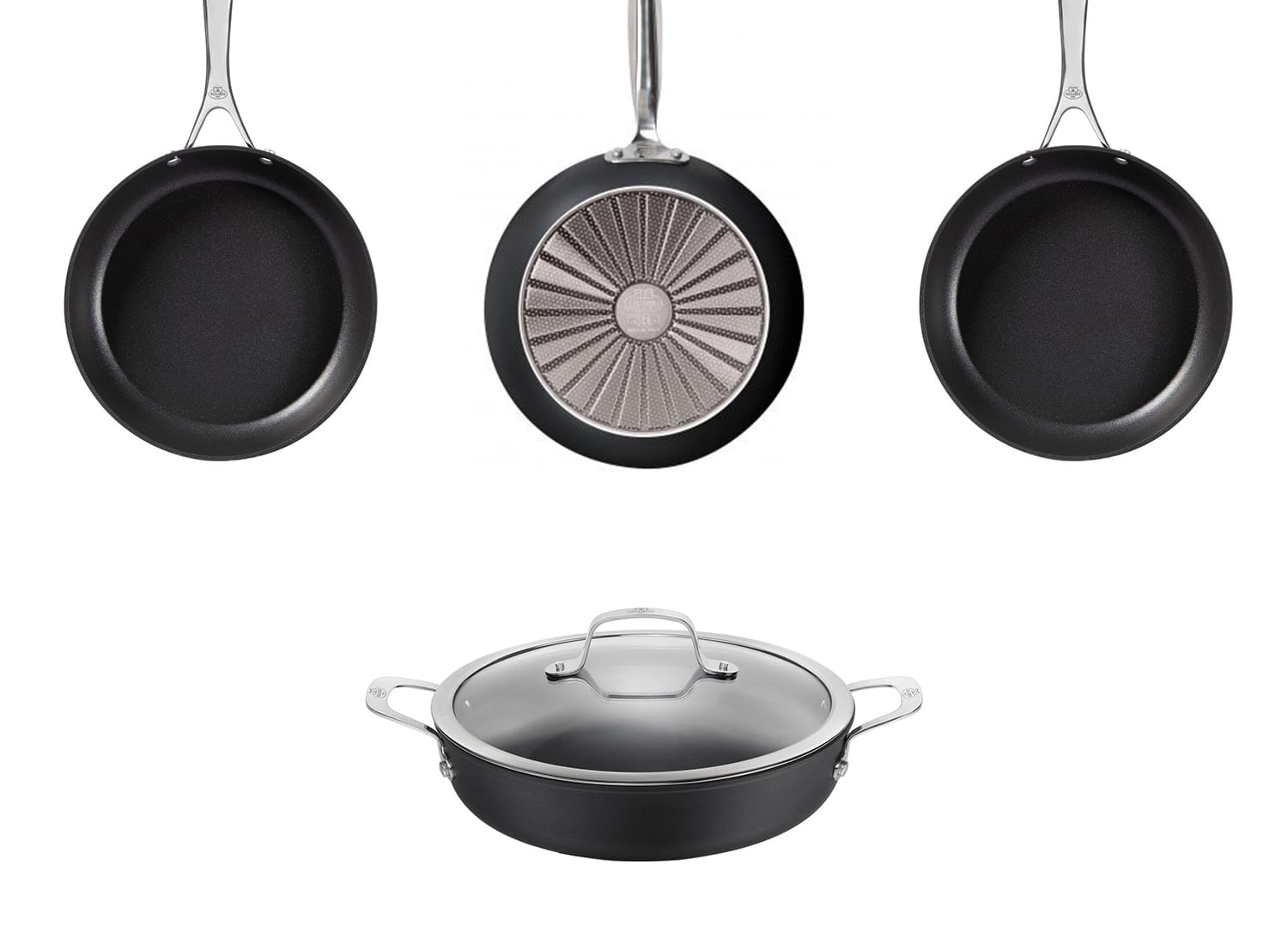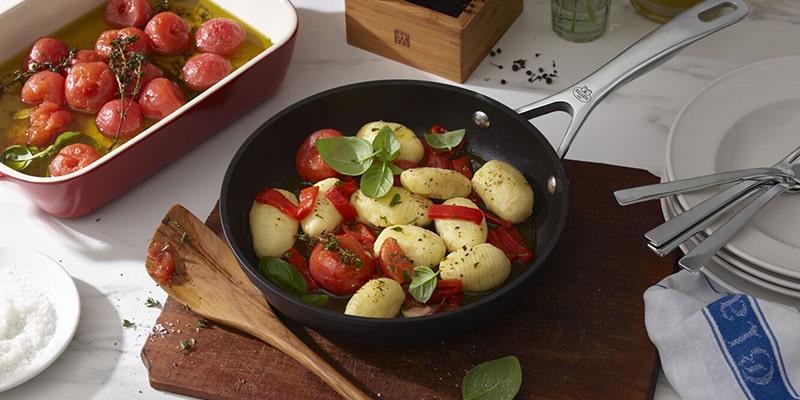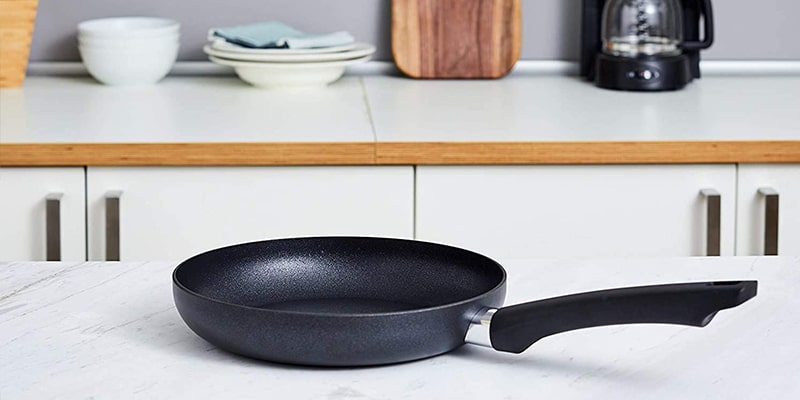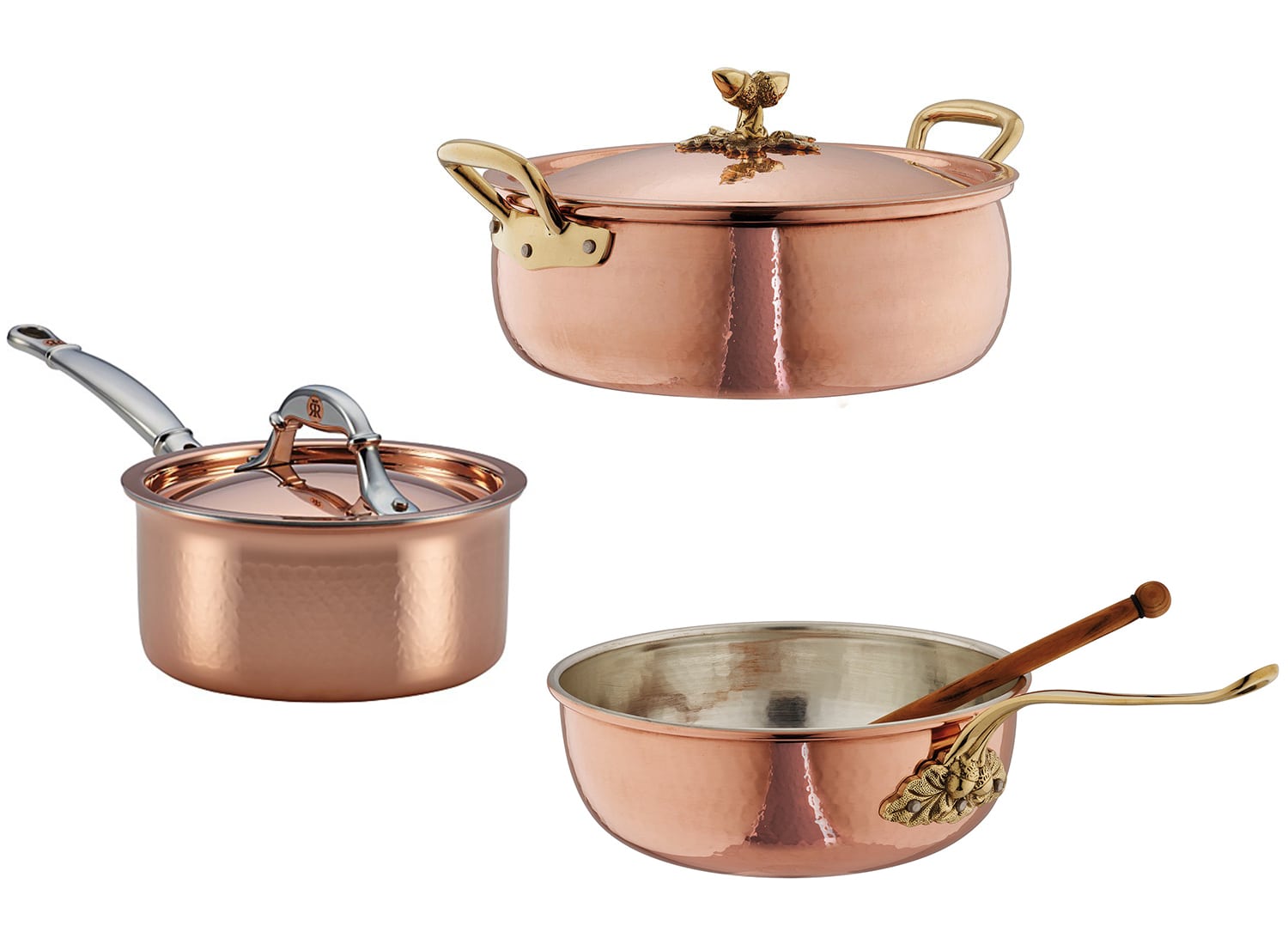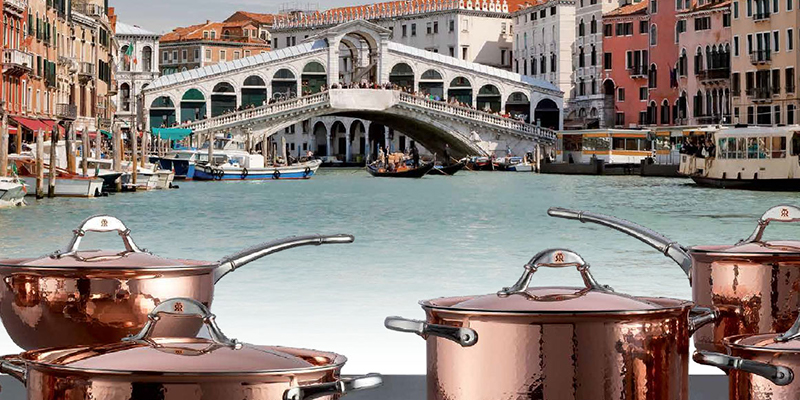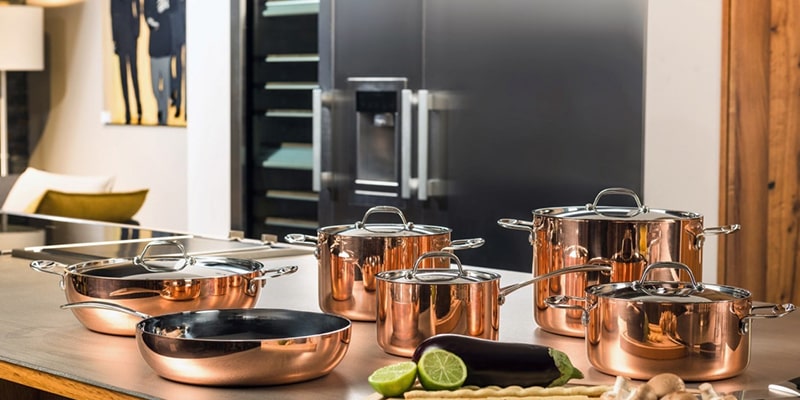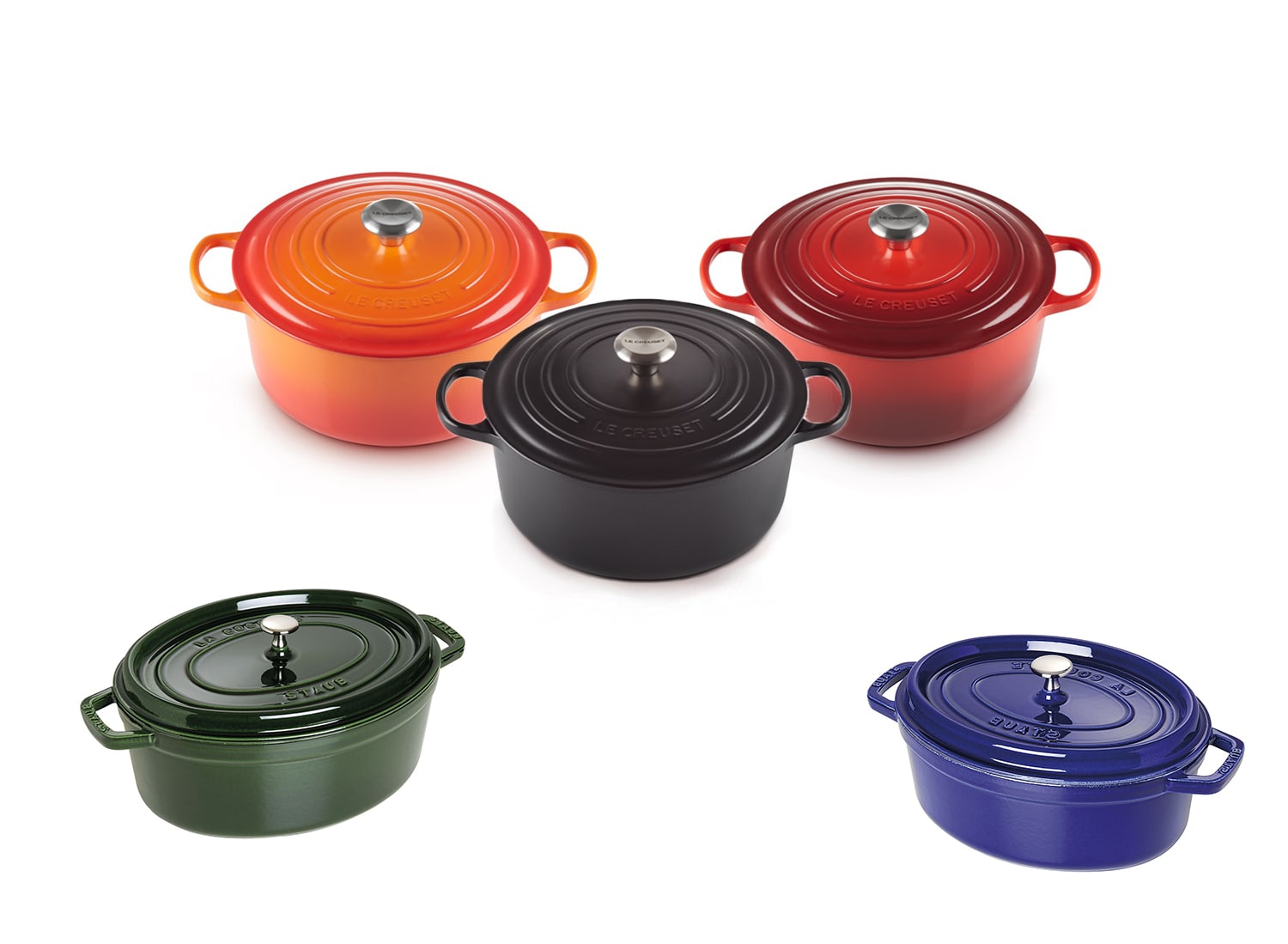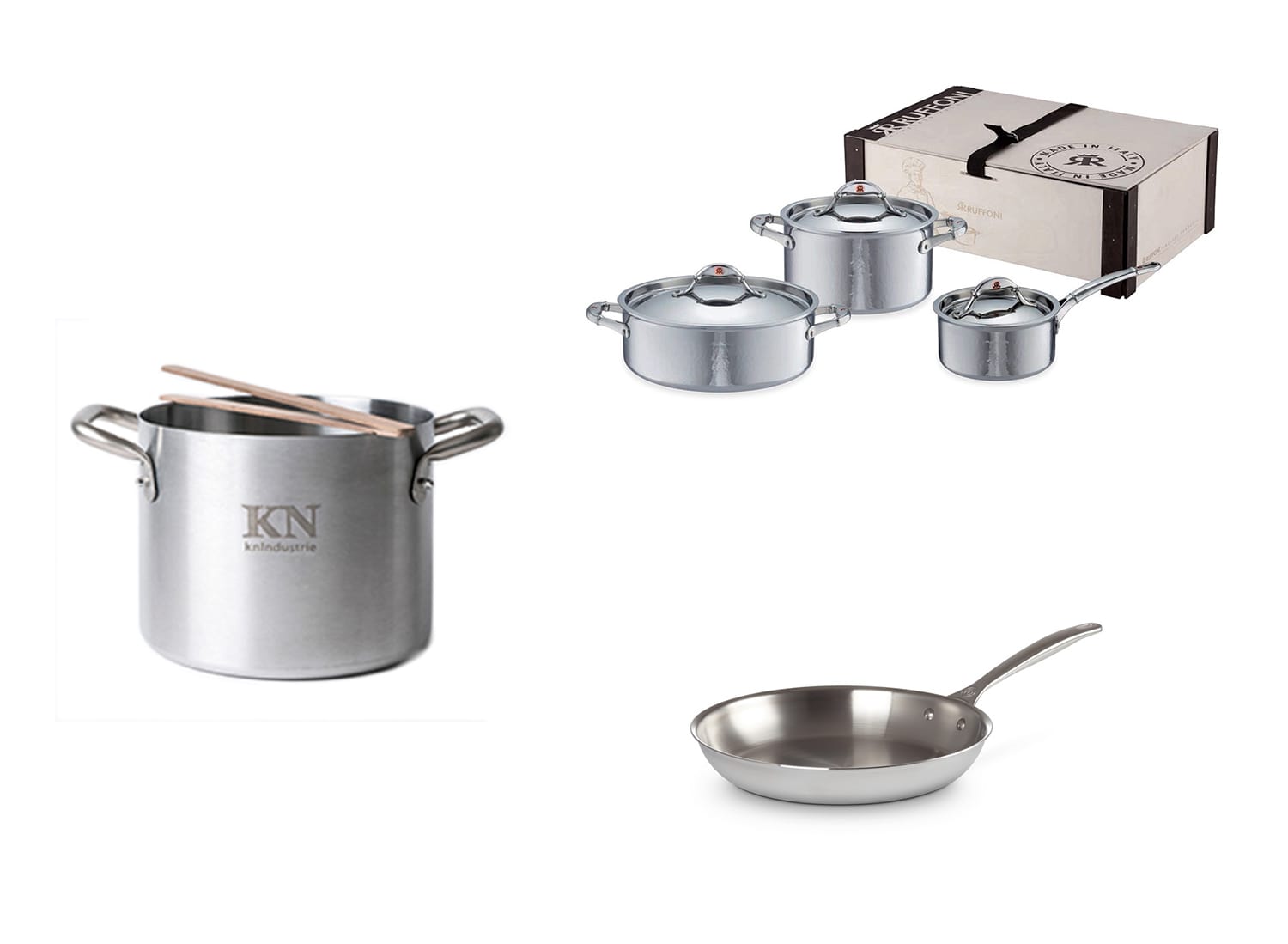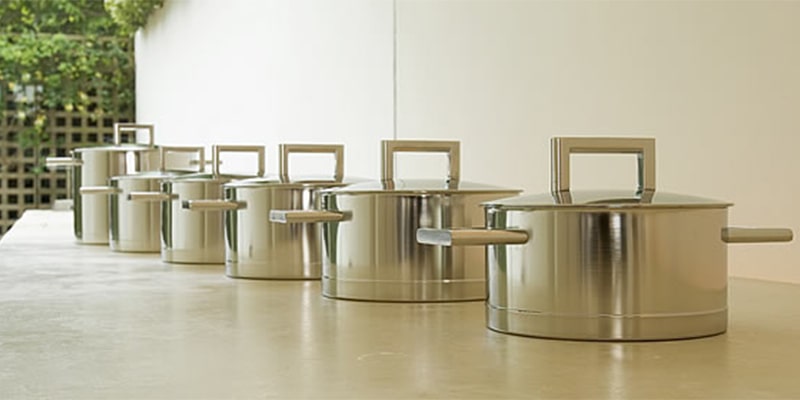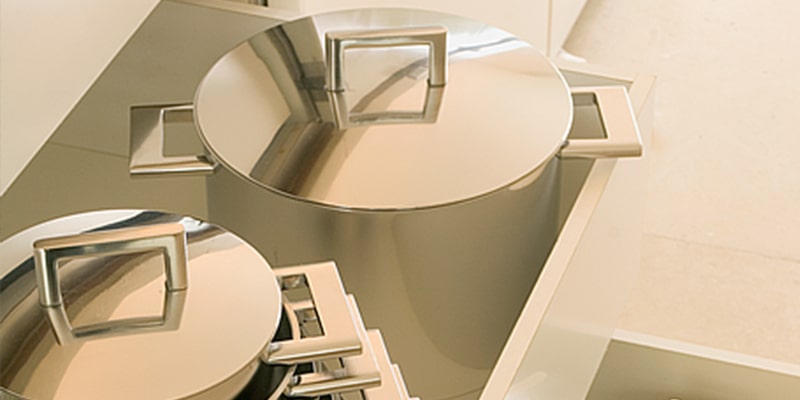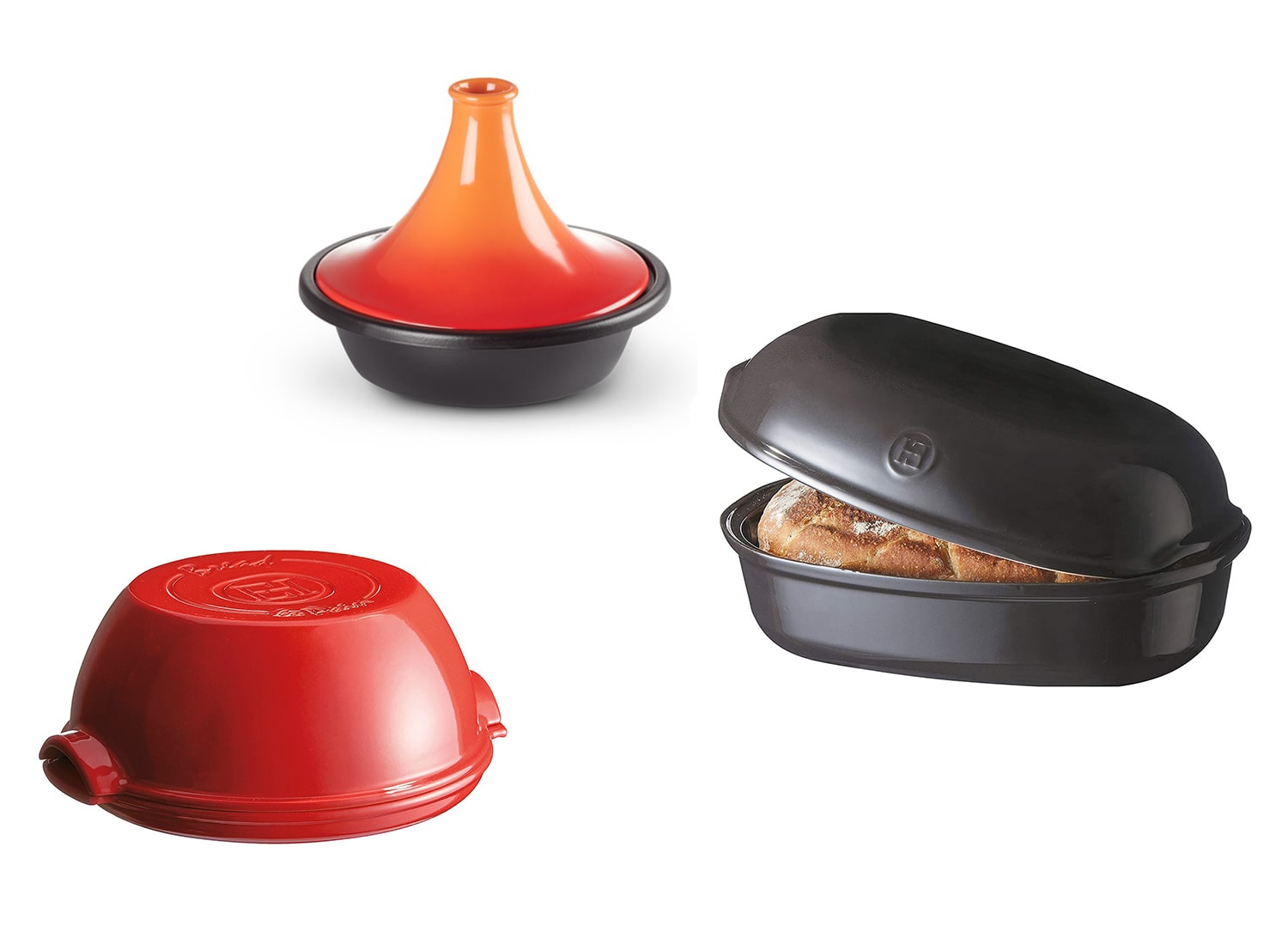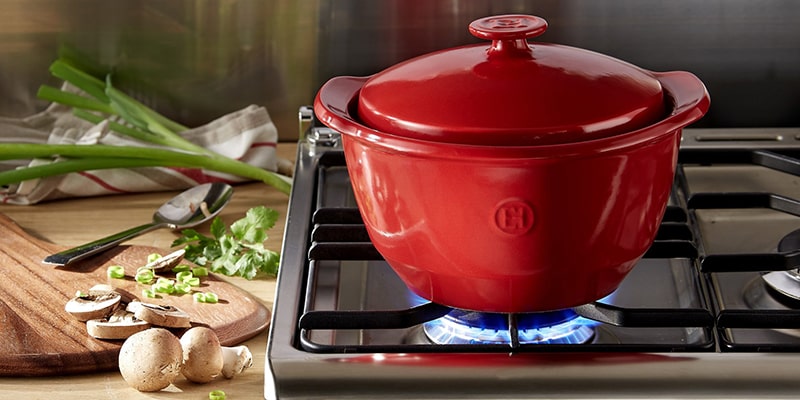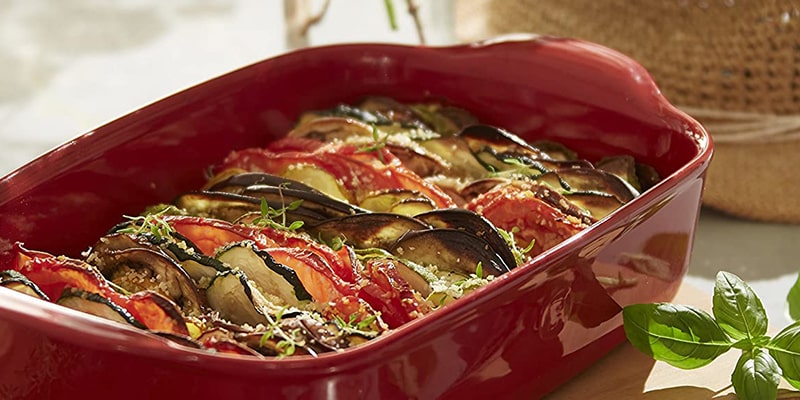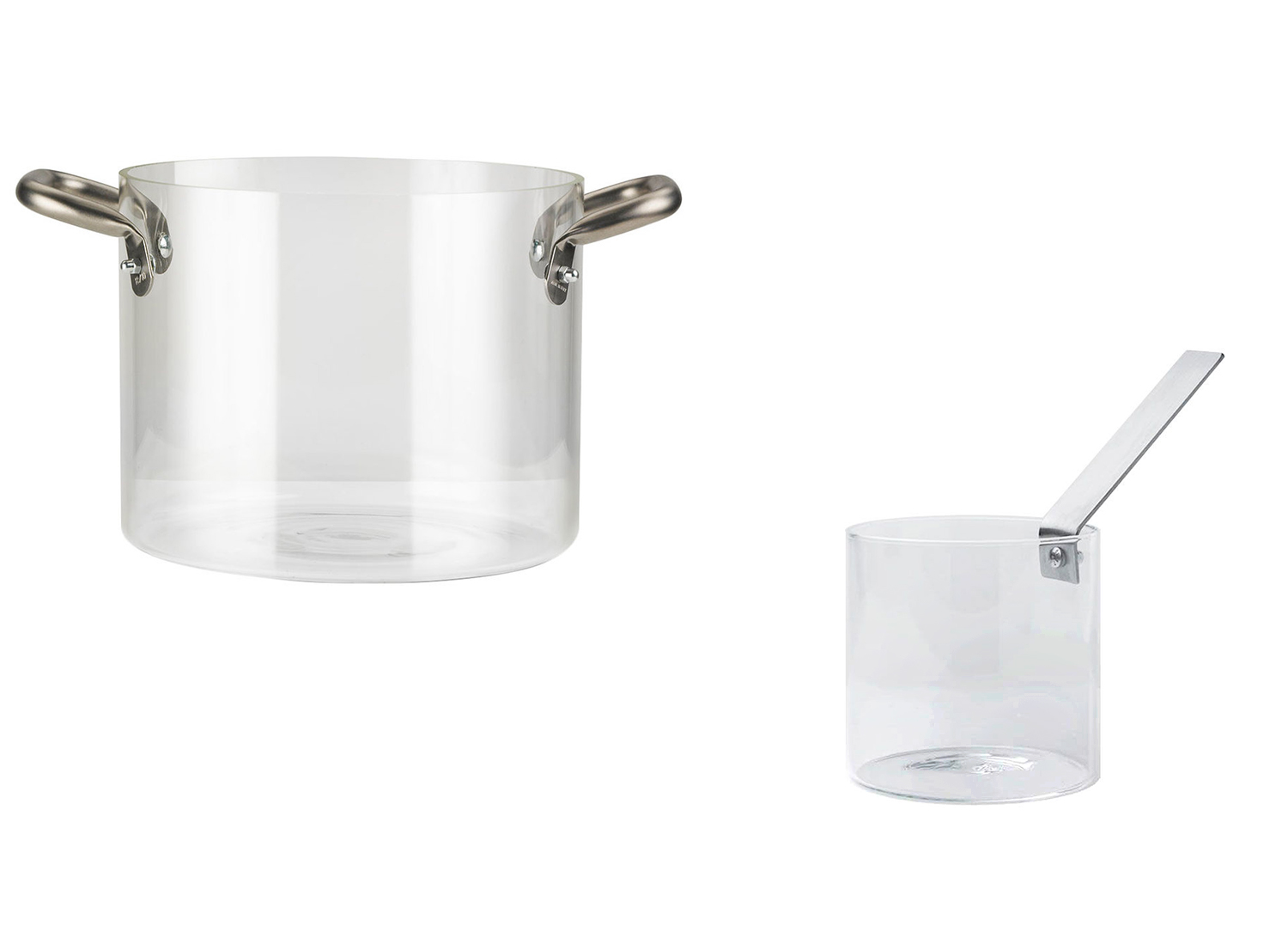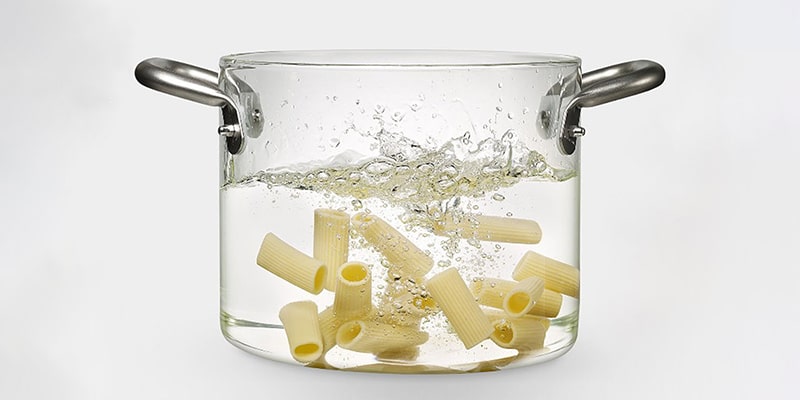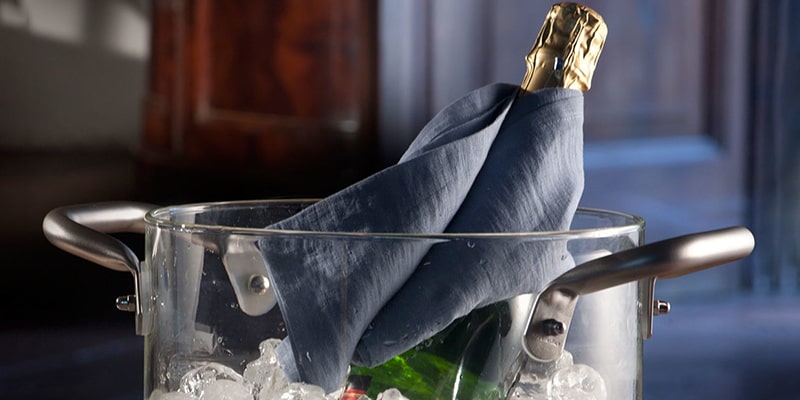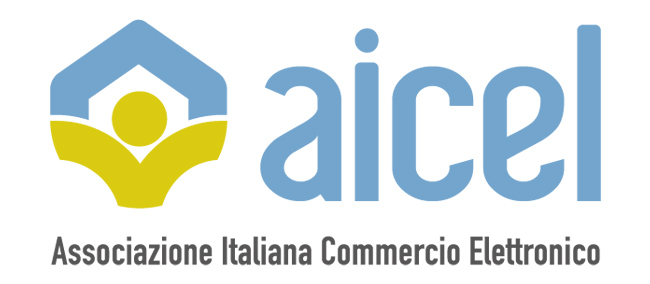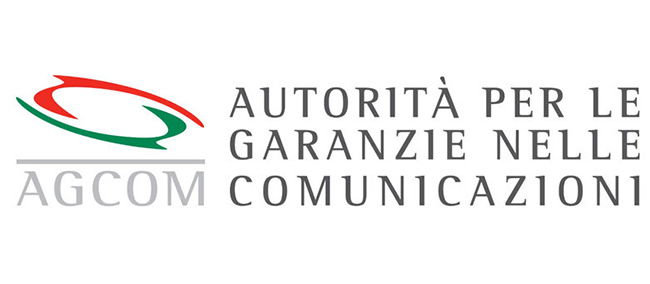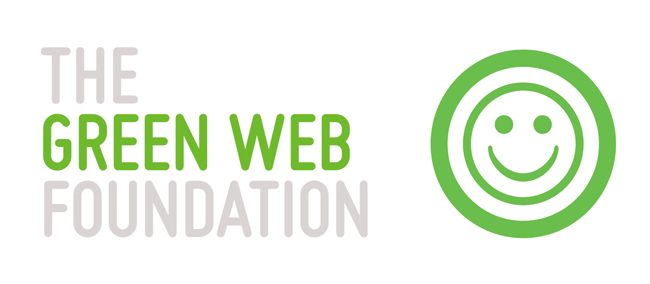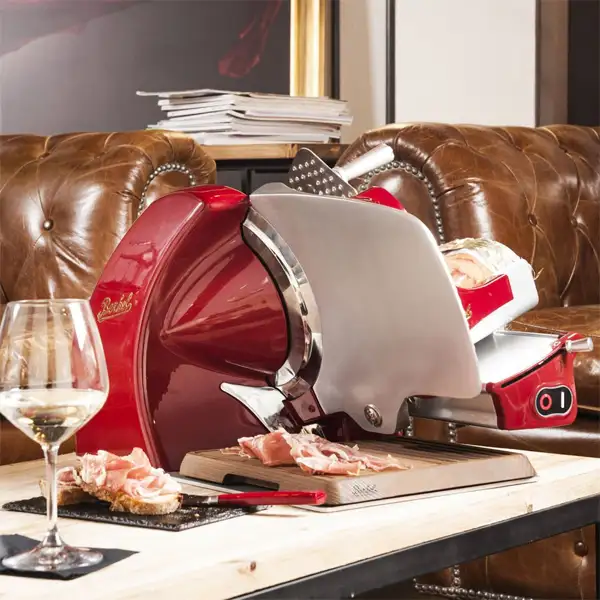NON-STICK ALUMINUM:
affordable and lightweight
PROS:
- Fully recyclable material;
- Uniform cooking due to excellent thermal conductivity. Always use low or medium fire, never too high;
- Excellent resistance to high temperatures, corrosion and abrasion;
- Lightweight material to lift and carry;
- Thanks to the non-stick coating you can cook with low fat (oil and butter);
- Excellent value for money.
CONS:
- Better to avoid the dishwasher that could leave rings (not harmful to food or health);
- Not suitable for storing food beyond 24 hours at room temperature.
COPPER: the best conductor
PROS:
- It is the best conductor of heat: this guarantees perfectly uniform cooking and energy saving;
- Excellent resistance to high temperatures, corrosion and abrasion;
- It is an investment: the possibility of polishing it, makes a copper pot practically eternal;
- No traces of nickel.
CONS:
- Material with a significant cost;
- Heavy material;
- Internal material must be stagnated from time to time to prevent the underlying metal from surfacing.
CAST IRON: for slow cooking
PROS:
- Elegant and professional, it can also be used to serve dishes directly at the table;
- It retains both heat and cold for a long time;
- Material particularly suitable for long cooking (browning vegetables, grilling or stewing meat).
CONS:
- Cast iron has a substantial weight and is therefore unwieldy;
- Too aggressive dishwasher washes can affect the enamel, although this does not affect the cooked food;
- Being an insulating material, cast iron also takes longer to heat up (up to 4 times longer than aluminum).
STAINLESS STEEL:
impeccable resistance
PROS:
- Ideal for brines;
- Excellent for bain-marie cooking;
- Excellent resistance to impact, thermal shock, abrasion and corrosion. Maintenance-free.
CONS:
- Heavy material, consequently unwieldy;
- Not an optimal heat conductor, so firing times are longer;
- Danger of oil and butter splashes given the temperature difference from the bottom;
- Easily attacked by the use of coarse salt;
- Often expensive;
- Presence of nickel and chromium.
CERAMIC: the queen of the oven
PROS:
- Non-stick coating that limits the consumption of oil and butter;
- Suitable for baking; for this purpose it also retains heat for a long time;
- Resistant to thermal shock, shocks, abrasions and scratches.
CONS:
- If the ceramic is damaged, the pot is no longer usable as it comes into contact with the food itself;
- Overly aggressive dishwasher washes can damage the coating.
GLASS: lightweight and good-looking
PROS:
- Suitable for baking;
- Lightweight and easy to handle;
- Attractive aesthetic because of transparency.
CONS:
- Not a good conductor of heat, so cooking times are longer;
- Extremely brittle and not very resistant to impact and thermal shock;
- Often expensive.





